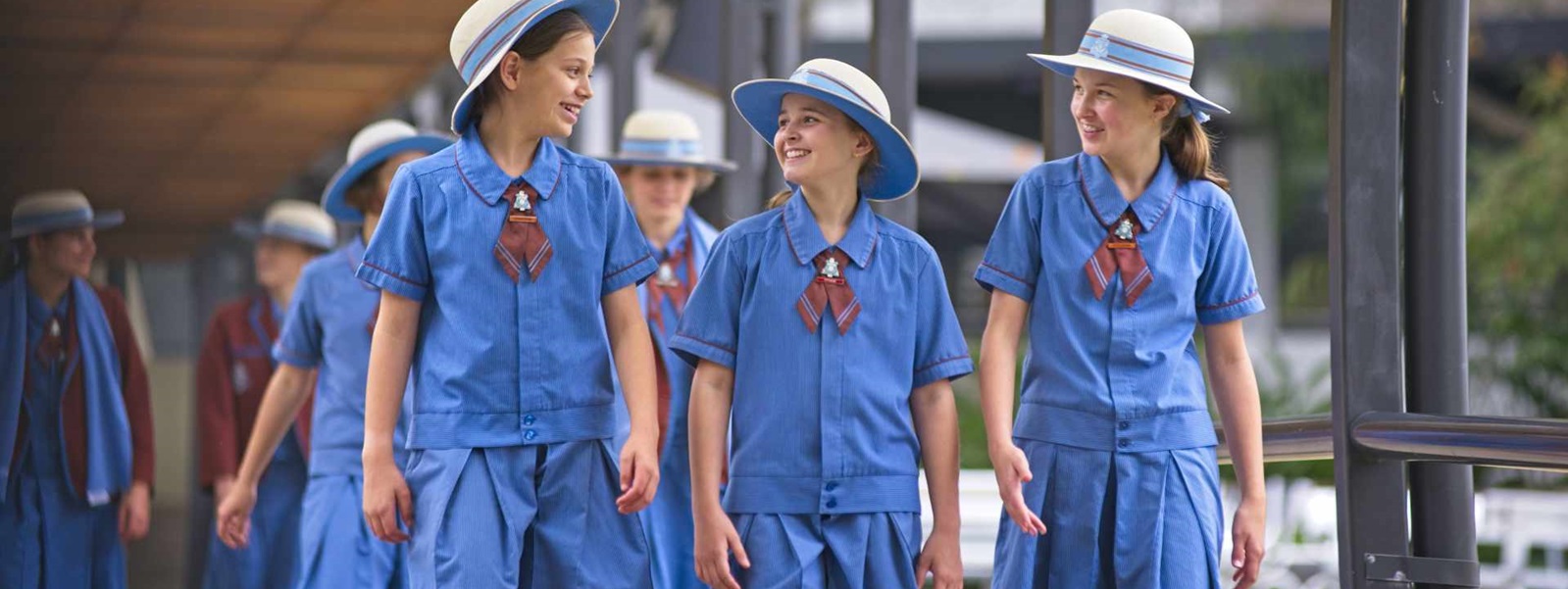
Responsive teaching that reflects the reality of the student experience using Microsoft Reflect

Every act of learning happens in a context. When an educator steps in front of a room to begin the first lesson of the day, with the first period bell’s ring still echoing in the hall, that educator must deal with myriad challenges and backgrounds students have brought to the classroom. Events at home, frustration with the course material, a first romance gone bad, and more can alter the mood of the students and their ability to connect with the material and each other. This social and emotional landscape has always been a part of the reality of learning, but its importance elevated in the wake of the disruptions of the last few years, and the anxieties it left behind in students. For All Hallows’ School in Brisbane, Australia, the solution came in the form of Microsoft 365 A5, Windows devices, and Microsoft Reflect.
A commitment to student well-being
Reflect is a check-in app that supports connection, expression, and learning. With the app, which is integrated easily into Teams, educators can design simple check-ins to gauge their students’ social-emotional well-being. Students are given prompts and emojis that help them express themselves, so that the process is as simple and intuitive as possible. The responses are then presented as insight dashboards that show snapshots of a class or student population and at-a-glance changes over time.
For the team at All Hallows’ School, one of the oldest schools in Queensland, Reflect was the right tool for engaging students and improving the equity of their learning outcomes. All Hallows’ was founded over 160 years ago by the Sisters of Mercy. The staff take the school’s motto of God and Duty seriously, educating young women with an emphasis on well-being and learning outcomes. Their 140 staff work tirelessly to establish a dynamic and holistic learning environment for over 1600 students across the campus.
That commitment includes improving student and staff well-being, so much so that it is part of the core pillars of their five-year strategic plan. John Pembroke, who serves as the Director of ICT and Information Services at All Hallows’ School, realized very quickly the power of Reflect to aid in this mission: “This is something the school sees as very, very important and we need to have underlying systems that allow that initiative to move forward. We see the Microsoft Reflect app as a cornerstone to support the wellbeing strategies we’re trying to roll out.”
A tradition of responsive teaching
One of those strategies is what is known as responsive practice or responsive teaching. John describes the team’s thought process this way: “We ask ourselves, ‘How can I use it as a teaching and learning tool? We currently use a teaching for learning framework, and one of those pillars of that framework is responsive practice. This can mean, are we assigning the right number of tasks, and are they getting done on time, or, in this case, ‘Is the student actually in a good mindset for learning?’”
John teaches a year eight class during period six on Tuesday afternoons. “I walk in there,” he explains, “and I have to immediately assess whether these girls are ready for learning or whether we need to pivot. Sometimes I just need the hard evidence, and the Reflect app can provide that almost instantaneously.”
Steve Crapnell, Head of Digital Pedagogy at All Hallows’ School, echoes John’s assessment.
“I can look at a class snapshot and see how my class is feeling that day. I can read their responses and it shows me, on an individual basis, if I need to touch base with specific students. Perhaps I can see that they’re feeling a bit overwhelmed now, and I can have a chat with them to help them feel heard and to develop strategies to lessen that stress. Or I know that I need to slow down, to stop moving through material at my normal pace.”
This might seem like merely a technological extension of a skill required of any teacher running a classroom but Reflect offers more than that.
Indeed, Steve describes one instance where Reflect changed the way he thought he understood his students: “When I first looked at Reflect responses I was surprised. I’d made certain assumptions, some of which were incorrect. I had one student that stuck in my mind. She gave the impression of just gliding across and learning effortlessly. But over time I looked at the Reflect data that was coming in, her quantitative and qualitative responses, and realized she was paddling madly underneath and feeling overwhelmed. Uncertain about certain aspects of her learning. That realisation helped me rethink my assumptions; I can’t assume just by looking and observing that I know a student’s mindset and emotional state. Reflect helps me understand them better, so I can be a better teacher when they are ready to learn.”
As someone committed to responsive teaching, Reflect has helped Steve recalibrate how he handles material on a day-by-day level.
“This app has better enabled me to adjust my teaching on the fly. Based on qualitative and quantitative Reflect responses I receive I can pivot the entire learning experience for a lesson.”
Data that defines the future of true service
That data also serves additional analytic purposes. By looking at Reflect data over time, John notes, they can get an idea of future trends, or if students are wholly impacted by events outside the classroom. “If we see declining trends,” he says, “we can evaluate why they’re declining, and we can adjust our strategies to cater to social changes. One of the key elements about social emotional learning is that not all data is quantitative. It can be fuzzy. It’s the words that matter. So, with qualitative tools like Reflect, you can do more analysis around the commonality of certain words, which then provides other insights that you can’t get from just hard numbers.”
Understanding these long-term trends is vitally important to the All Hallows’ staff, and to the mission they serve. The Mercy tradition rests on six core values: respect, integrity, compassion, joy, service and justice. When All Hallows’ School evaluate platforms, John explains, they do so in light of those values. “Does an app or hardware improve how the school fulfills its mission? Does it improve equity of access and outcomes? The Reflect App must have integrity behind the way it works. “
Microsoft 365 A5 and Windows devices are already providing equitable access and improved learning outcomes across the school. And now the Microsoft Reflect app has proved to be a key enabler to how the educators at All Hallows’ School teach with compassion—with each students’ emotional wellbeing top of mind.
Categorised in: Education, Industry
This post was written by Microsoft Australia









